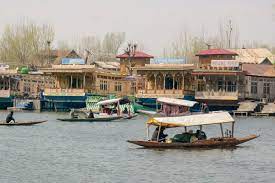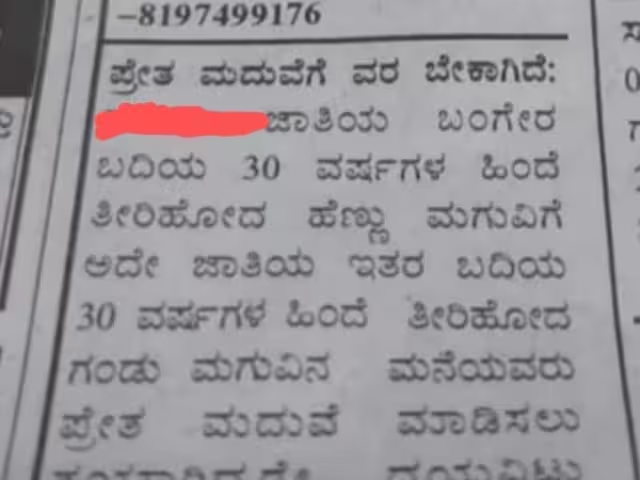Art 370 Scrapping Signals New Era for J&K from PM KISAN, Jal Jeevan Mission to Ayushman Bharat
Due to its unique position, Jammu & Kashmir has historically had a high level of administrative complexity, bureaucratic barriers, and restricted access to development efforts. However, a new chapter of empowerment and progress for the people of the former state has started when the Narendra Modi administration abrogated Article 370 in 2019.
For instance, the Ayushman Bharat Jan Arogya Yojana’s implementation has made it possible for nearly 82.3 lakh registered beneficiaries to access previously unavailable high-quality healthcare treatments. Over 12 crore poor and vulnerable families (or roughly 55 crore beneficiaries), who make up the bottom 40% of the Indian population, are to receive health coverage of Rs 5 lakh per family per year for secondary and tertiary care hospitalization under the “yojana,” the largest health assurance program in the world.
By providing tap connections to 12.6 lakh families, the Jal Jeevan Mission revolutionized the region’s water supply by making clean drinking water accessible. By 2024, all families in rural India are expected to have access to clean and sufficient drinking water via individual home tap connections thanks to the community approach-based program.
Arun Kumar Mehta, the Chief Secretary of Jammu and Kashmir, said during a virtual tour of the projects undertaken as part of the mission in February that the remaining rural houses in J&K will be connected to the public water system by June of this year. Under the Jal Jeevan Mission 2022–23, the Modi administration gave the UT an amount of Rs 9,289.15 crore, which is Rs 6,412.71 crore higher than it received in the budget for the previous year.
Regarding the Pradhan Mantri Awas Yojana (PMAY), the program assisted in the completion of 21,652 residential units under PMAY-Urban and 1.7 lakh homes under PMAY-Rural. The Jammu and Kashmir Lieutenant Governor’s (L-G) administration accepted a plan for the Pradhan Mantri Awas Yojana-Gramin (PMAY-G) to provide 5 marlas (.031 acres) of land to each landless person residing in the union territory in July of this year.
“For Jammu and Kashmir, it is a momentous day, and for thousands of landless families, it marks a fresh start. The administration’s pursuit of social justice, equality, respect, and equal chances for all residents will be exemplified by this historic decision, according to L-G Manoj Sinha.
Additionally, the Bhartiya Jan Aushadhi Pariyojana significantly reduced the cost of healthcare by making generic medications accessible via 226 Jan Aushadhi Kendras. Bhupinder Kumar, administrative secretary for the Health and Medical Education (H&ME) Department, said earlier this year that the number of Jan Aushadhi Kendras in Jammu and Kashmir has reached a record 227 to date and that they are supplying the people with inexpensive, high-quality medications.
According to official statistics, Jan Aushadhi Kendras sold generic medications for Rs 22 crore in the fiscal year 2021–2022; this amount rose to Rs 48 crore in 2022–2023.
The effective execution of PM Jan Dhan Yojana helped to increase financial inclusion as well. A large portion of the 26.5 lakh new bank accounts opened by women increased access to formal banking services and gave them the tools to save money and use credit options.
PM KISAN and PM Mudra Yojana were important players in the agriculture industry. The PM-KISAN program offers direct financial assistance to farmers in the amount of Rs 6,000, whilst the Mudra Yojana offers loans to non-corporate, non-farming small and micro companies up to Rs 10 lakh.
In addition to these significant adjustments, the elimination of special status has made it possible for infrastructure projects in Jammu and Kashmir to move forward more quickly, which has led to the completion of the Chenab Bridge, the highest railway bridge in the world that crosses the majestic Chenab River, as well as the eagerly anticipated Atal Tunnel, the longest single-tube highway tunnel in the world.
With 53 major projects totaling Rs 58,477 crore and an annual budget of Rs 1.18 lakh crore, 32 of the projects in Jammu & Kashmir and Ladakh have been completed, while nine more projects in Ladakh totaling Rs 21,441 crore are in the planning stages.
Here is how Ladakh has also benefited from the development:
With a budget of Rs 11.5 crore, Ayushman Bharat delivered healthcare to 1.3 lakh people.
33,495 home tap connections were built by Jal Jeevan Mission to increase water availability.
In order to guarantee appropriate housing, PMAY (Rural & Urban) constructed 1429 homes and 666 housing units.
Bharatiya The inexpensive medication program Jan Aushadhi Pariyojana provided cost Rs. 106.5 crore.
PM 21,908 bank accounts were established via the Jan Dhan Yojana, with 55% of them being opened by women.
RS 36 billion was set aside by PM KISAN to aid farmers.
The PM Mudra Yojana approved Rs 960 billion for business owners.







